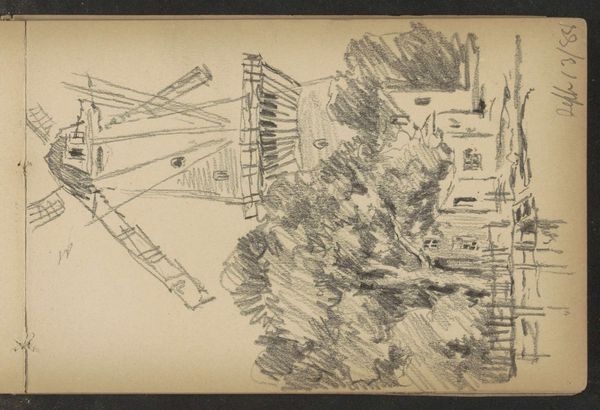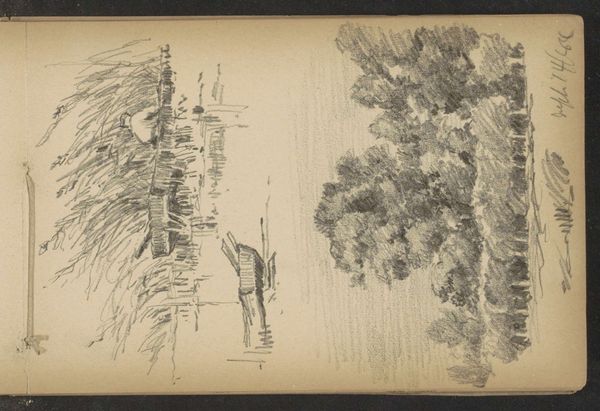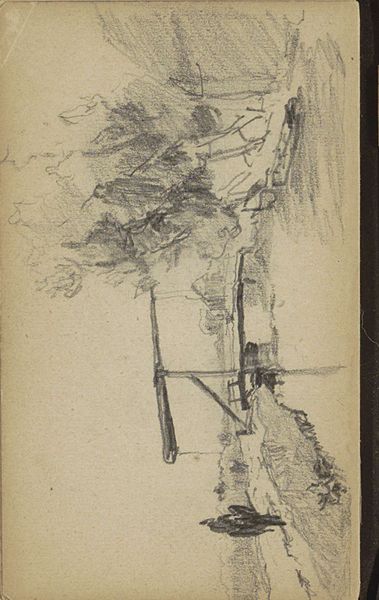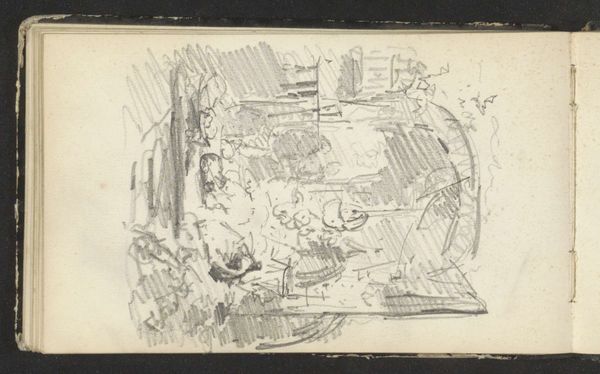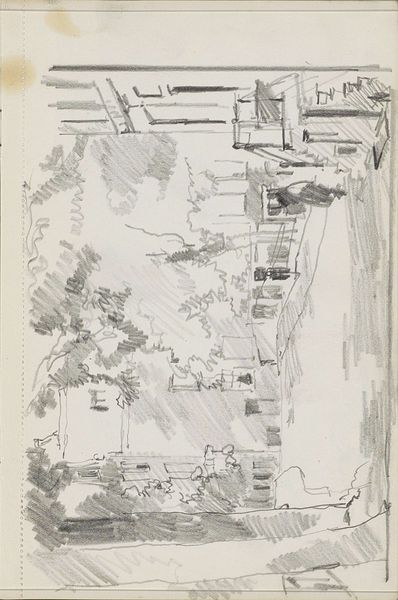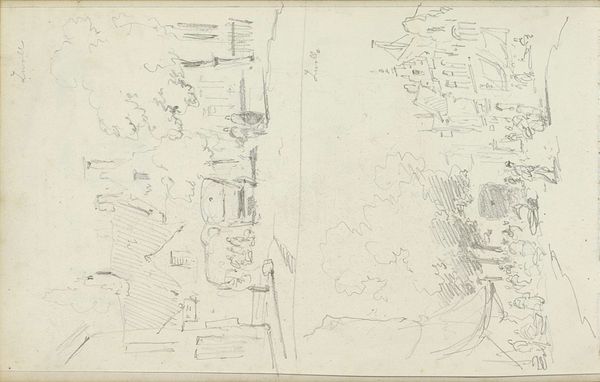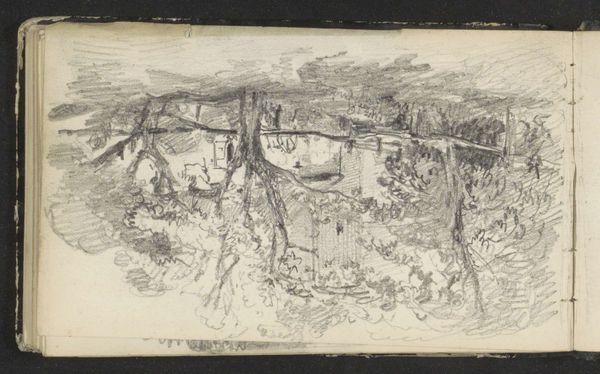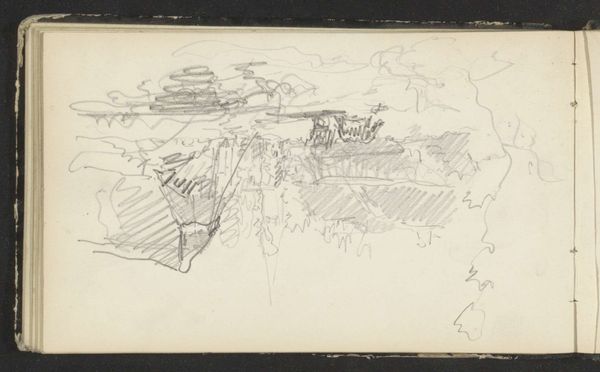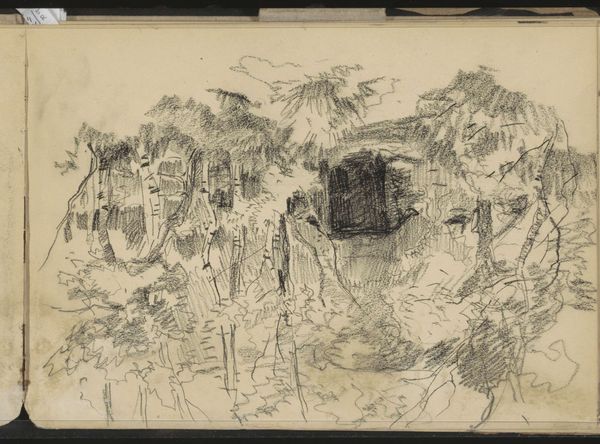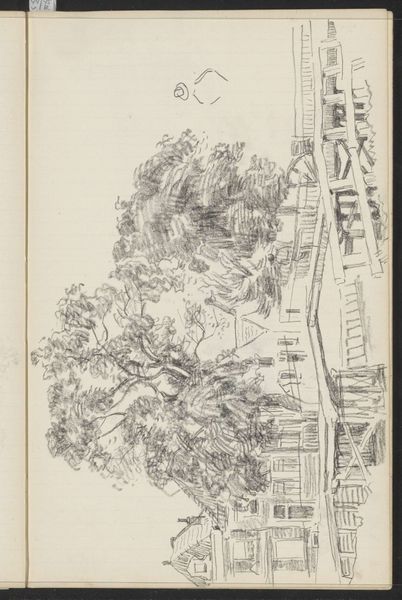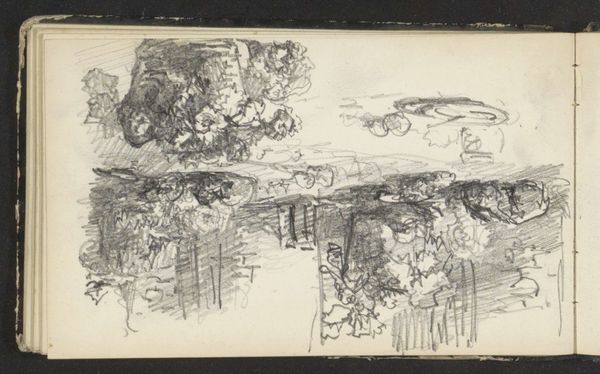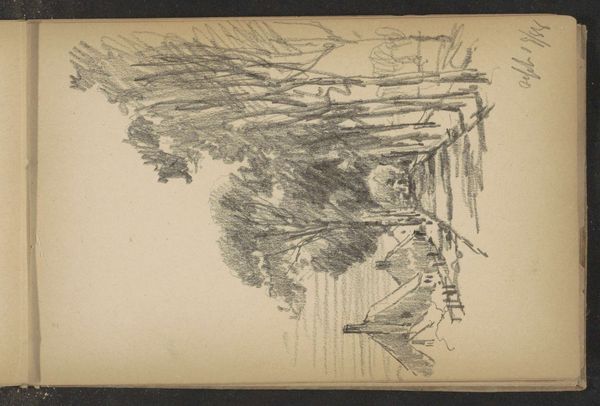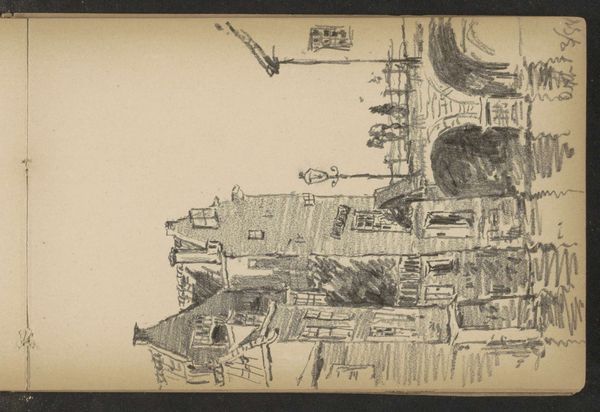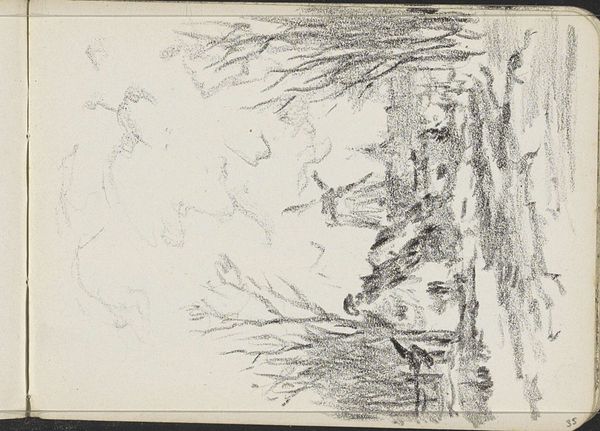
drawing, pencil
#
drawing
#
impressionism
#
pen sketch
#
sketch book
#
landscape
#
personal sketchbook
#
sketchwork
#
ink drawing experimentation
#
pen-ink sketch
#
pencil
#
pen work
#
sketchbook drawing
#
storyboard and sketchbook work
#
sketchbook art
Copyright: Rijks Museum: Open Domain
Editor: Here we have "Molen De Roos te Delft," a pencil and ink drawing created by Alexander Shilling between 1888 and 1889. It’s a rather busy sketch, almost frantic, but there's a certain charm to the rapid lines and shading. What strikes you most when you look at this piece? Curator: I see a palimpsest, a layering of experience etched onto the page. The mill, 'De Roos,' is less a portrait and more a mnemonic device, a trigger for recollection. Do you notice how the solidity of the structure is almost dissolved by the energy of the lines? Editor: Yes, it's like the mill is both present and fading away at the same time. What does that suggest to you? Curator: It evokes the way we remember places – not as fixed entities, but as fluid, ever-changing landscapes shaped by our perceptions and emotions. The sketch becomes a mirror reflecting not just the mill, but the artist's inner world. Notice also the framing—it almost acts as a stage, and the quick, nervous energy speaks to an immediacy of experience, something personally resonant. Editor: That's a compelling point. So the incompleteness of the sketch, its somewhat chaotic nature, isn't a flaw, but rather a strength that provides a glimpse into how memory works? Curator: Precisely. Shilling isn't simply depicting a windmill, but capturing the ephemeral quality of perception itself. What symbols did this conjure for you? Editor: Initially, I just saw a sketch, but thinking about memory makes the incomplete ladder or unfinished gate almost doorways to be completed by individual understanding. This makes me look at my own photos and quick sketches and realize their deeper significance. Curator: An important thing to note when observing the art and the everyday. Our dialogue hopefully unlocks a cultural and introspective insight into something so ordinary, or, something previously regarded as mundane, opening pathways for collective memory and symbolism.
Comments
No comments
Be the first to comment and join the conversation on the ultimate creative platform.
